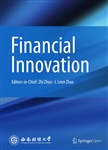Institutions and FDI:evidence from developed and developing countries
作者机构:Kashmir Institute of EconomicsUniversity of Azad Jammu&KashmirMuzaffarabadAzad KashmirPakistan Department of StatisticsUniversity of Azad Jammu&KashmirMuzaffarabadPakistan
出 版 物:《Financial Innovation》 (金融创新(英文))
年 卷 期:2019年第5卷第1期
页 面:122-141页
核心收录:
学科分类:12[管理学] 0202[经济学-应用经济学] 02[经济学] 1202[管理学-工商管理] 1201[管理学-管理科学与工程(可授管理学、工学学位)] 020204[经济学-金融学(含∶保险学)]
主 题:Institutional quality FDI Economic development Panel data
摘 要:This study investigates the impact of institutional quality on Foreign Direct Investment(FDI)inflows using panel data for low,lower-middle,upper-middle and high-income countries for the sample period of 1996-2016 using the system Generalized Method of Moments(GMM).The empirical results confirm that institutional quality has a positive impact on FDI in all group of *** magnitude of the coefficients of control of corruption,government effectiveness,political stability,regulatory quality,rule of law,and voice and accountability for FDI inflows are greater in developed countries than in developing *** conclude that institutional quality is a more important determinant of FDI in developed countries than in developed ***,GDP per capita,agriculture value-added as a percentage of GDP,and inflation influence FDI inflows negatively in developed countries,while GDP per capita,trade openness,agriculture value-added as a percentage of GDP,and infrastructure have positive and statistically significant impacts on FDI inflows in developing *** openness as a percentage of GDP and infrastructure positively affect FDI in developed *** our analysis,we infer that institutional quality is a more important determinant of FDI in developed countries than in developing countries.



